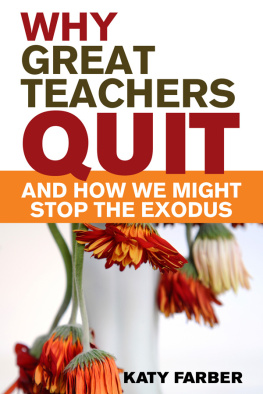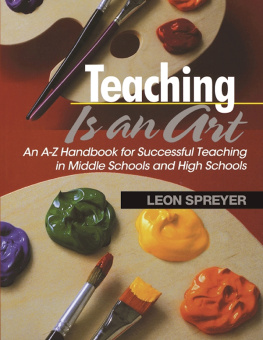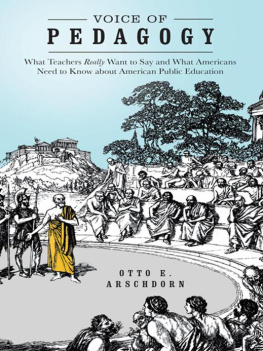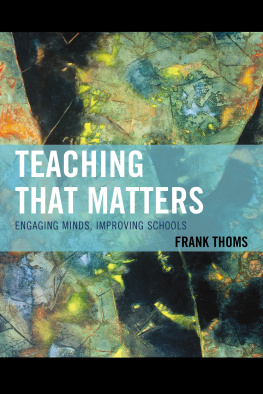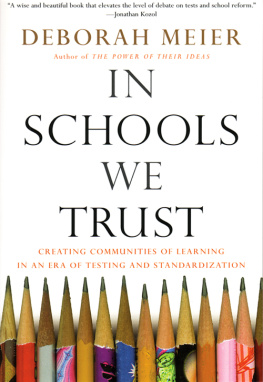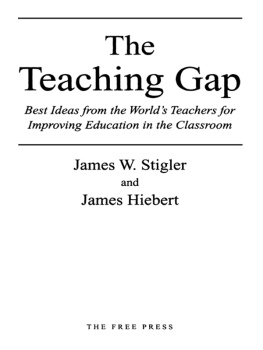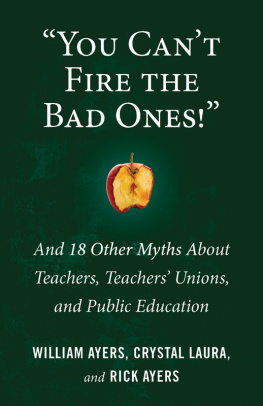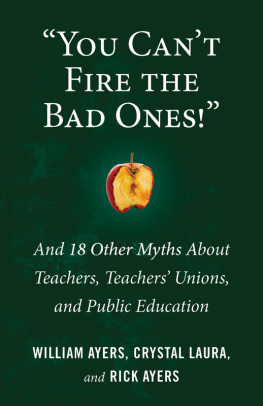To my parents, Anne and Don Farber. And to my little daughters, Addy and Elly, may you continue to grow, learn, love, and speak your mind.
Copyright 2010 by Katy Farber
First Skyhorse Publishing edition 2015
All rights reserved. No part of this book may be reproduced in any manner without the express written consent of the publisher, except in the case of brief excerpts in critical reviews or articles. All inquiries should be addressed to Skyhorse Publishing, 307 West 36th Street, 11th Floor, New York, NY 10018.
Skyhorse Publishing books may be purchased in bulk at special discounts for sales promotion, corporate gifts, fund-raising, or educational purposes. Special editions can also be created to specifications. For details, contact the Special Sales Department, Skyhorse Publishing, 307 West 36th Street, 11th Floor, New York, NY 10018 or .
Skyhorse and Skyhorse Publishing are registered trademarks of
Skyhorse Publishing, Inc., a Delaware corporation.
Visit our website at www.skyhorsepublishing.com.
10 9 8 7 6 5 4 3 2 1
Library of Congress Cataloging-in-Publication Data is available on file.
ISBN: 978-1-62914-748-2
Ebook ISBN: 978-1-63220-188-1
Printed in China
Contents
by Virginia Hines
by Katy Farber
Foreword
E ach semester I ask the students in the course, Introduction to the Profession of Teaching (EDUC 101): Why do you want to be a teacher? Each semester the responses follow three general themes: I love children, I want to exemplify a teacher that influenced me, or I love my content area and I want others to love it too. While all of these rationales are noble, and I am sure genuine, they are not reasons that will sustain an educator through his or her teacher education program and through those first few years as a professional. It will take more than a love of children, a memory, or a passion of content to assure that a teacher will stay in the teaching profession for his or her career.
Nationwide, one of five teachers will leave the profession in their first year. That number grows to three in five during the first five years. There are numerous stories of why teachers leave; the job may not have been what the educator had idealized or the money may not be what was expected. A lack of motivated students, limited parental support, school violence, or the long hours of grading and planning that consume ones life may all be factors. Unfortunately, those factors that force teachers to abandon their chosen paths are growing.
At the end of five years, there are two teachers who stick it out: two teachers out of five have kept their commitment to themselves, their students, and the community. Who are they? What makes them stay? What makes them thrive in the gloom and doom of todays educational systems?
First and foremost, the teachers who have stayed in teaching are graduates from solid teacher education programs. They have worked hard in their academics and they have been active participants in their field experiences. They have developed skills of critical thinking, problem solving, and with-it-ness. They are compassionate and caring. They understand human growth and development. They know their content and they possess the skills and knowledge needed for cognitive engineering. But these characteristicseven when tied to the love of children, fond memories of school, and a deep love of subject matterwill not be enough for a teacher to commit to the classroom for thirty years.
It takes more. It takes a keen understanding of who you are, what your role is in the scheme of things, and how your actions affect the actions of others. It takes a systems-thinking approach, efficacy, and reflection. Katy Farber, a former student of mine and the author of Why Great Teachers Quit: And How We Might Stop the: And How We Might Stop the Exodus, addresses some of the causes of teacher attrition. She writes compellingly about the various problems in schools that make it difficult for teachers to stay and teach. But one of the things that Katy does best in her book is to address the manners in which we can help teachers overcome those problems and thrive. She lists numerous suggestions and solutions to those varied factors and provides some great resources for teachers. A unique aspect of the text is Farbers ability to describe the nature of teaching within the concept of a larger system; educating children is not just the role of the educator, but the responsibility of all stakeholders in society. She presents the idea that we all have the power and the responsibility to assure the sustainability of the schoolhouse and the community. Educating learners is not a solitary task, but a system that provides opportunities for students, teachers, parents, and communities to grow. Educating learners also provides the means to sustain a global society, inspire innovation, and promote human dignity. If you as a teacher look closely at where your position is within that system and access the wide realm of resources available, then successful teaching will be your reward.
A YouTube sensation by the name of Sherman Dalton (Believe in Yourself, 2009) begins a speech to the Dallas ISD by stating, I believe in me. He asks his audience, Do you believe in me? Do you believe that I can stand up here fearless and talk to over twenty thousand of you? Of course we believe in Dalton. We believe that he can reach his highest potential, that he will meet high expectations and make us proud. But thats not the part of his speech I want to focus on. Dalton asks the teachers and staff at that opening day meeting, Do you believe in you? Well do you? Do you believe that when you face your first class as a novice teacher that you can fearlessly make a difference in the lives of twenty-five learners? Do you believe that you can have a dramatic impact upon their motivation to learn? Do you believe that you can facilitate their respect of all individuals and facilitate their appreciation of differences among humankind? If you do believe in you, then you have efficacy. You have the knowledge that you can act as an agent of change. You are aware that what you do today will affect tomorrow in the lives of students, in the schoolhouse, and in the greater society. You understand that you can improve the society we live in, help students meet their full potential, and be a powerful influence on making a better world.
Reflection is a term that is often given lip service in the teaching profession. Its application is limited; all too often it is overlooked for a packaged cure in teaching. What does reflection mean? How does it apply to an aspiring or seasoned teacher? Reflection is akin to responsibility. Responsibility is the ability to see oneself as cause, to take ownership of the decisions you make and the consequences of those decisions. John Dewey (1933) stated that the active, persistent, and careful consideration of any belief or supposed form of knowledge in light of the grounds that support and the further conclusion to which it tends constitutes reflective thought (pg. 9). In simpler terms, the educator needs to ask, How do I know that? Is there evidence to support what I believe? Real evidence, not something you have always heard or just looked up on Wikipedia. Evidence based in the context of classroom practice. Data: hard evidence that comes in the form of observations, assessment, and research. What Dewey wanted teachers to think about was What is the impact of your actions upon your students? Do your perceptions and expectations affect students achievement and behavior? Numerous studies have enlightened us and made it clear that teachers expectations have an effect upon student achievement. The lens that we use to view a learner will have an impact upon that students engagement in class, their motivation to learn, and their perception of self. As Dalton states, Heres the deal. I can do anything, be anything, create anything, dream anything, become anything. Because you believe in me. And it rubs off on me. The key here is that you think before you act. You are thoughtful about how you address a child or class. You analyze your students needs and make plans accordingly. And you look yourself in the mirror and ask, Are my students learning? Did I do the best job I could? How do I know this? What could I have done better?

